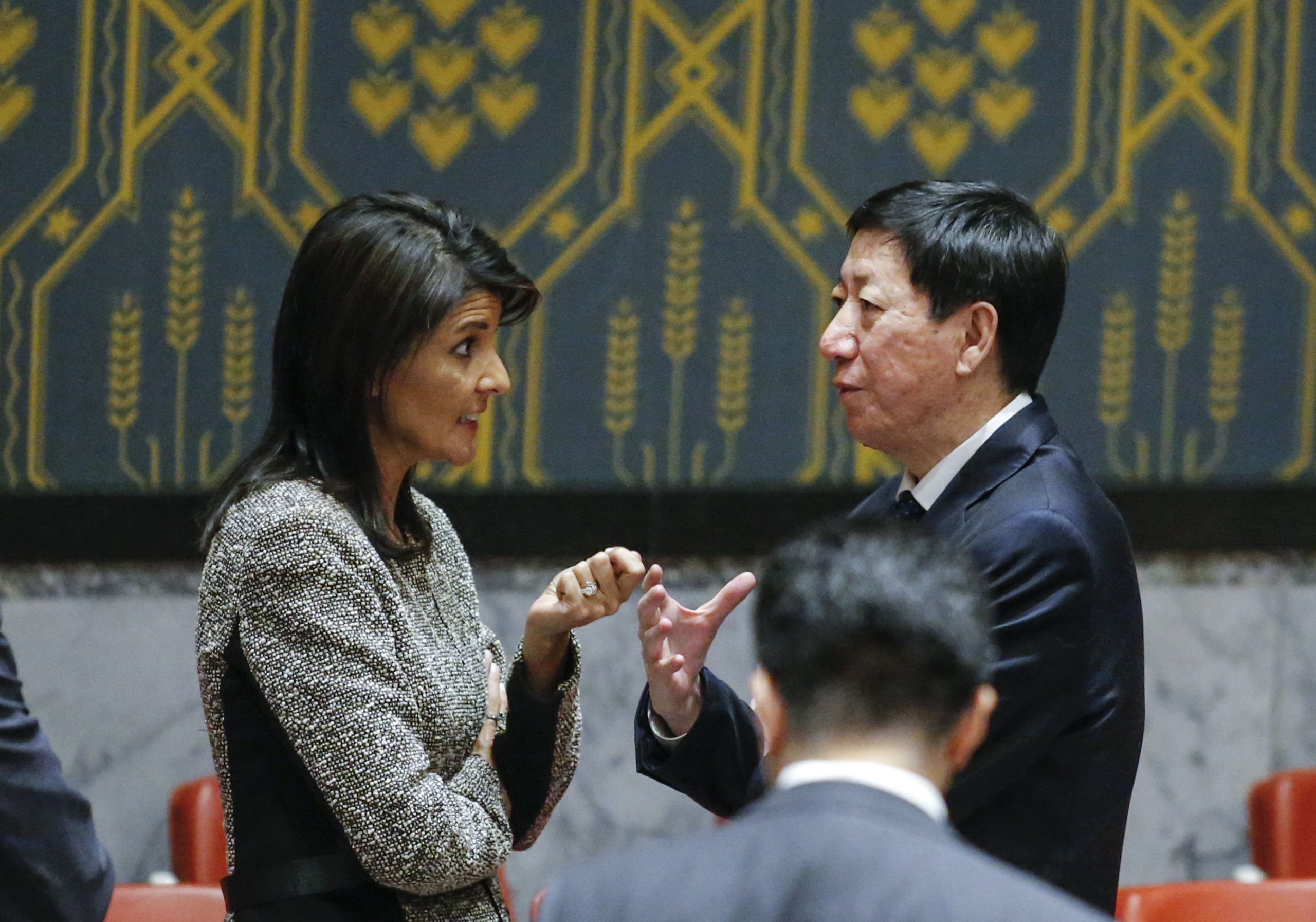Republican presidential candidate Nikki Haley went after former President Donald Trump’s approach to China, arguing Tuesday at the American Enterprise Institute that Trump failed to accomplish basic policy objectives.
Haley, who is in fourth place in the RealClearPolitics 2024 presidential primary polling average, had previously refrained from directly attacking the 45th president. The remarks constitute her strongest criticism of Trump since she entered the race in February. As United Nations ambassador, Haley sought to hold China accountable for its protection of North Korea’s nuclear missile program.
Trump “did not put us on a stronger military foothold in Asia,” Haley said. “He did not stop the flow of American technology and investment into the Chinese military. He did not effectively rally our allies against the Chinese threat. Even the trade deal he signed came up short when China predictably failed to live up to its commitments.”
Despite Trump’s stated goal of imposing tariffs to reduce the U.S.-China trade deficit, economists have consistently found that the tariffs contributed to inflation and increased the trade deficit. China also slapped retaliatory tariffs on key U.S. agricultural exports. (RELATED: Trump Accuses China Of Trying To Interfere In US Elections With Tariffs)
Haley also joined Republican candidates Mike Pence, Chris Christie, Asa Hutchinson and Will Hurd in criticizing Trump’s character. She claimed that he showed “moral weakness” in his dealings with Chinese dictator Xi Jinping.
“In his zeal to befriend President Xi, Trump congratulated the Communist Party on its 70th anniversary of conquering China. That sent the wrong message to the world. Chinese Communism must be condemned, never congratulated,” Haley said.

US Ambassador to the UN Nikki Haley speaks with Wu Haitao China’s deputy permanent representative to the UN after a UN Security Council emergency meeting over launch of another ballistic missile by the Democratic People’s Republic of Korea on November 29, 2017, at UN Headquarters in New York. (KENA BETANCUR/AFP via Getty Images)
However, she argued, President Joe Biden’s policy of appeasement is “much worse” than Trump’s. She name-checked the origins of COVID-19, fentanyl production and Biden’s “obsessive focus” on climate policy. She also noted China’s military build-up, both in the air and at sea. The People’s Liberation Army has repeatedly flown fighter jets into Taiwanese airspace, and one PLA plane buzzed a U.S. Air Force craft in late May.
In response to Chinese aggression, Haley argued that the U.S. government should develop new military technologies and speed up procurement. In addition, the U.S. should cultivate military ties with east Asian partners like Japan, South Korea, Australia, India and the Philippines, she added. (RELATED: Biden To Sell Nuclear Submarines To Australia In Anti-China Push)
“We must cut through the bureaucracy, stop playing favorites with defense companies and bring new weapons and projects to the field in record time,” Haley said.
Haley also name-checked a number of policies popular with Republicans at the state and national level, including bans on Chinese purchases of American farmland, Confucius Institutes and former members of Congress lobbying the federal government on China’s behalf. She also pledged to end permanent normal trade relations with the communist power.
The ambassador linked American support for Taiwan to American support for Ukraine.
“If America and the West abandon Ukraine, and Russia succeeds in taking its territory and freedom, China will hear an unmistakable message,” she said. “That’s a recipe for more war in both Europe and Asia.”
Haley has repeatedly declined to say whether or not she would support Taiwan militarily in the event of an invasion, only that a Chinese invasion would lead to economic decoupling. She dodged a reporter’s question about the issue, saying that the policies she outlined would deter an invasion.


